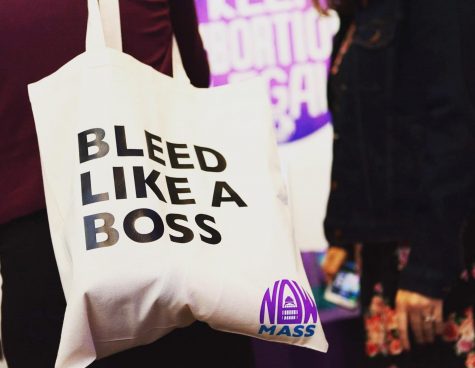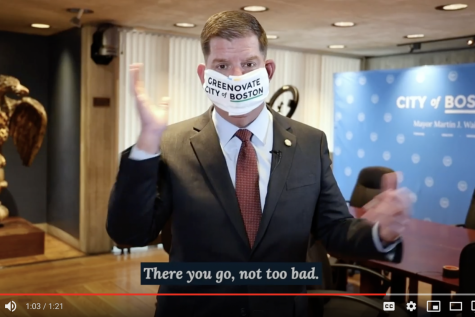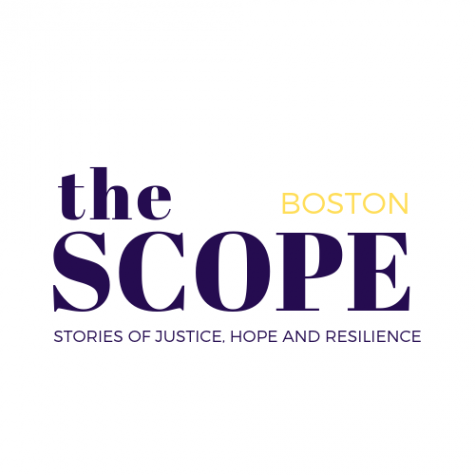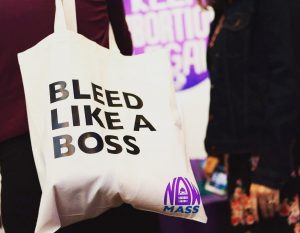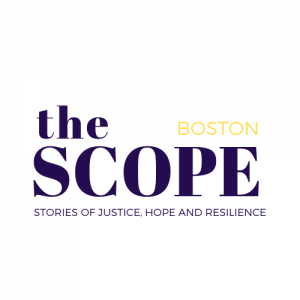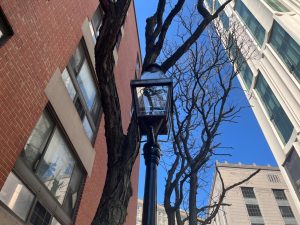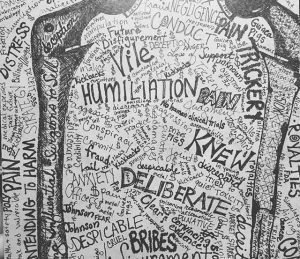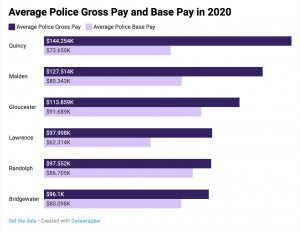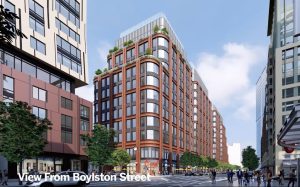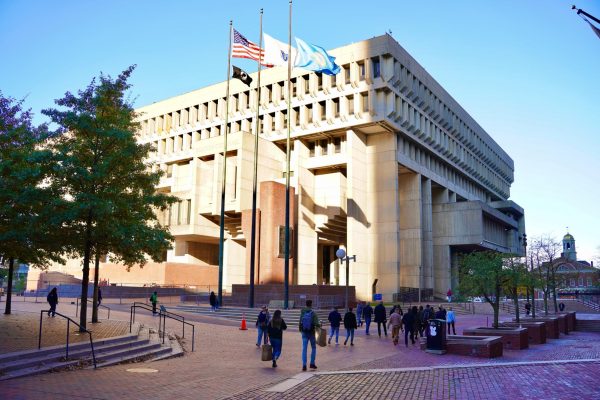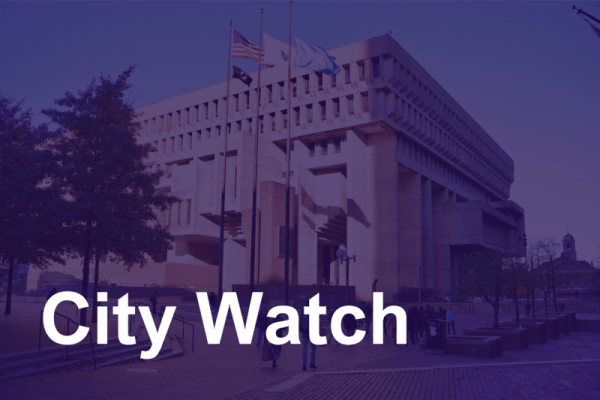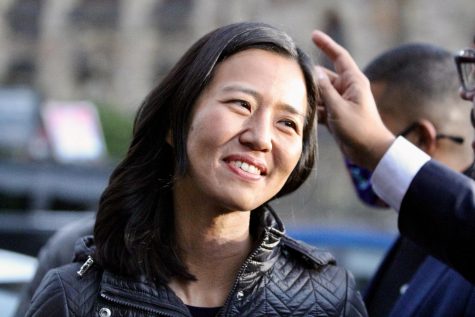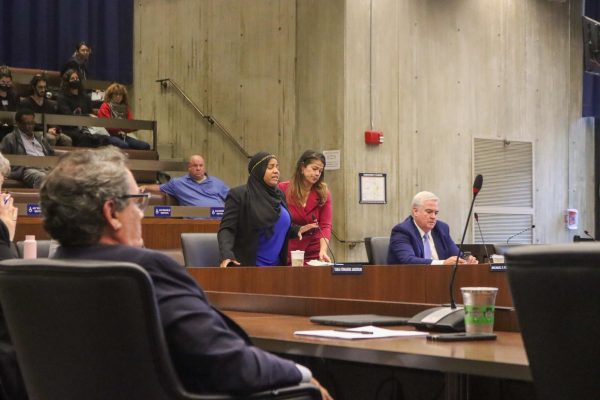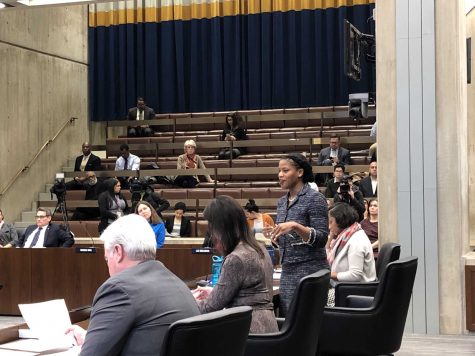City Council to recognize October as Dyslexia Awareness Month, talks decline in BPS enrollment
October 2, 2020
Should October become Dyslexia Awareness Month in Boston? How should the city tackle a decline in student enrollment at Boston Public Schools? The council discussed these and other issues relating to digital equity and disability services in the Boston Public Schools during this week’s virtual Boston City Council meeting.
The following five dockets were discussed in the meeting:
Internet access and digital equity in Boston – Docket #0890
Councilor Ed Flynn, chair of the committee on city and neighborhood services, offered a recap of the committee’s public hearing on internet access and digital equity in Boston. He emphasized the need for affordable and stable internet access, especially as critical services, resources and classes are only available online during the pandemic.
“As Councilor [Liz] Breadon mentioned in the hearing, the internet is now an important utility, just like electricity,” Flynn said.
The committee hopes to work with organizations to provide classes on digital skills and expand the city’s Wicked Free Wi-Fi program.
The order will remain in committee.
Expansion of hydration and hygiene water stations in Boston – Docket #1020
Councilor Matt O’Malley offered an order for a hearing on expanding hydration and hygiene water stations in Boston. Over the past seven to eight years, he has contributed to ensuring that water filling stations have been placed in parks and playgrounds throughout the city, he said.
“I think it’s important to revisit this idea and look at it through a different lens as it relates to not only the environmental impact or the very real cost but also the health impact in the importance of hydration,” O’Malley said. “In a time of uncertainty and instability, the last thing that Bostonians should have to worry about is access to clean and healthy water.”
The environment and sustainability committee will partner with the Museum of Science, which is conducting a local evidence-based project to map heat islands and at-risk areas for climate change.
“The locations of urban heat islands within the city of Boston reflect historic structural disparities in income as well as access to opportunity within our city,” O’Malley said. Additionally, death rates grow exponentially every year from heat waves, he said.
O’Malley also said he looks forward to potentially partnering with colleges and universities to create sanitation stations and water filling stations that look like fountains and other attractive infrastructure around the city.
Decline in student enrollment at Boston Public Schools despite population uptick – Docket #1021
Councilor Michael Flaherty offered an order for a hearing regarding the declining enrollment at Boston Public Schools. Enrollment numbers are down by 5,000 from the 2016-2017 school year, despite the city’s population uptick, he said.
Flaherty expressed concern that the decline would affect the Weighted Student Formula, also known as the fair student funding or student-based budgeting, which determines funding for Boston Public Schools, as well as the achievement gap, which has already been exacerbated by COVID-19.
Councilor Annissa Essaibi-George connected the decline to other complex issues like “the decades-long efforts to defund public schools at the federal and state levels, the ramifications of existing racial and economic segregation and mismanagement, sometimes too often at the district level.”
“I look forward to getting into this conversation with the hope that we will be able to lift up solutions that untangle this complex knot and will set every [Boston Public School] school up to be the best school possible,” said Essaibi-George.
The docket was referred to the committee on education.
Recognition of the International Week of the Deaf – Docket #1022
Flynn offered a resolution to recognize International Week of the Deaf, which is celebrated in the last week of September. The commemorative week was initiated by the World Federation of the Deaf to celebrate accomplishments of those who are deaf and to promote their rights.
Flynn also commended Boston Public Schools’ Horace Mann School for the Deaf and Hard of Hearing in Allston, the oldest public school for those with hearing disabilities in the United States.
The resolution was adopted.
Recognition of October as Dyslexia Awareness Month in Boston – Docket #1023
Councilor Julia Mejia offered a resolution to recognize October as Dyslexia Awareness Month as a time to raise awareness, share resources and tell success stories of those with the learning disorder.
Essabi-George will continue her work around dyslexia services as co-sponsor of the resolution. On Oct. 25, city hall will be lit in red for dyslexia awareness and Essaibi-George will hold a hearing and a watch party to examine dyslexia services and raise awareness in Boston Public Schools during October.
The docket was adopted.
Watch the whole City Council meeting here:


